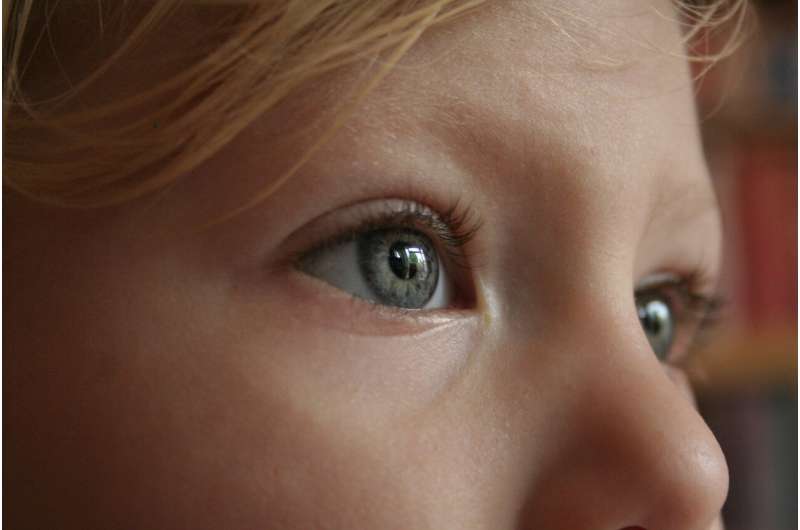Understanding What Occurs in the Brain When Your Mind Goes Blank

Mind blanking is a phenomenon experienced by many, characterized by moments where thoughts seem to disappear, leading to a state of 'mental absence' or 'drowsiness.' This state encompasses a range of experiences from feeling momentarily 'spaced out' to a complete lack of conscious awareness. In a detailed review published in Trends in Cognitive Sciences, neuroscientists and philosophers explore what happens in the brain during these episodes and what they reveal about consciousness.
During typical wakefulness, our thoughts and mental content shift continuously. However, there are instances when this flow pauses altogether, resulting in what is termed 'mind blanking.' Researchers highlight that these lapses are more than just minor distractions; they could be linked to specific neural states and physiological changes. The challenge remains that the very definition of mind blanking is somewhat ambiguous, blurring the lines between different altered states of consciousness.
Historically, most studies focused on mind wandering, where thoughts drift seamlessly from one to another. Mind blanking, in contrast, appears distinct, often associated with feeling sleepy, sluggish, and experiencing increased error rates. It is commonly observed during prolonged attention tasks, after sleep deprivation, or physical exertion, but also occurs as a natural waking state.
Research involving brain activity monitoring techniques like functional magnetic resonance imaging (fMRI) and electroencephalography (EEG) has shed light on neural signatures associated with mind blanks. Notably, specific activity patterns emerge in the frontal, temporal, and visual regions of the brain before a blank episode. During these episodes, physiological signs such as decreased heart rate and pupils constriction are observed, along with lower brain signal complexity—an indicator similar to states of unconsciousness.
Importantly, evidence suggests that parts of the brain may 'sleep' locally during these episodes, with disruptions in sensory processing and EEG patterns akin to sleep waves. Increased activity in posterior cortical areas can also lead to mind blanking, especially when high-speed, overactive thinking paradoxically causes slowing overall cognitive function.
Experimental prompts asking individuals to deliberately 'empty their minds' have shown deactivations in regions such as Broca's area, the hippocampus, and the supplementary motor cortex, indicating a widespread withdrawal of typical cognitive functions.
The team of researchers proposes that fluctuations in arousal—the brain's level of vigilance—may be central to these blank episodes. Variations in arousal could impair key cognitive processes like memory, language, and attention, resulting in transient mind blanks. They suggest viewing mind blanking as a dynamic and physiologically driven state, rather than a mere absence of mental activity.
Understanding this phenomenon better can help distinguish it from other mental states such as meditation or mind wandering. Recognizing mind blanking as a unique state opens avenues for further research into consciousness and the brain's functioning during wakefulness. As lead researcher Thomas Andrillon emphasizes, investigating mind blanking challenges the common idea of continuous thought during wakefulness and highlights individual differences in subjective experience.
This burgeoning field of research underscores the importance of considering how fluctuations in arousal and neural activity influence our mental state, potentially impacting clinical conditions, attention management, and our understanding of consciousness itself.
Stay Updated with Mia's Feed
Get the latest health & wellness insights delivered straight to your inbox.
Related Articles
Study Finds Slight Reduction in Behavioral Issues Among Toddlers During COVID-19 Pandemic
A new study finds that toddlers assessed during the COVID-19 pandemic showed slightly fewer behavioral problems, indicating resilience in early childhood despite societal disruptions.
Potential Risks of Emotional Wellness Apps Powered by AI
Emerging research warns that AI-powered emotional wellness apps could pose mental health risks, including emotional dependency and manipulation, highlighting the need for stricter regulation and responsible design.
Effective Strategies for Reducing Depression in High School Students through Emotional and Social Skill Development
A year-long school-based program in Japan successfully reduces depressive symptoms among high school students by developing key emotional and social skills, offering a practical model for mental health promotion in educational settings.
Long-term Effects of Childhood Financial Hardship on Mental Health in Later Life
Experiencing financial hardship in childhood can lead to increased anxiety, loneliness, and emotional distress decades later. Improving financial stability over time can help mitigate these effects.



